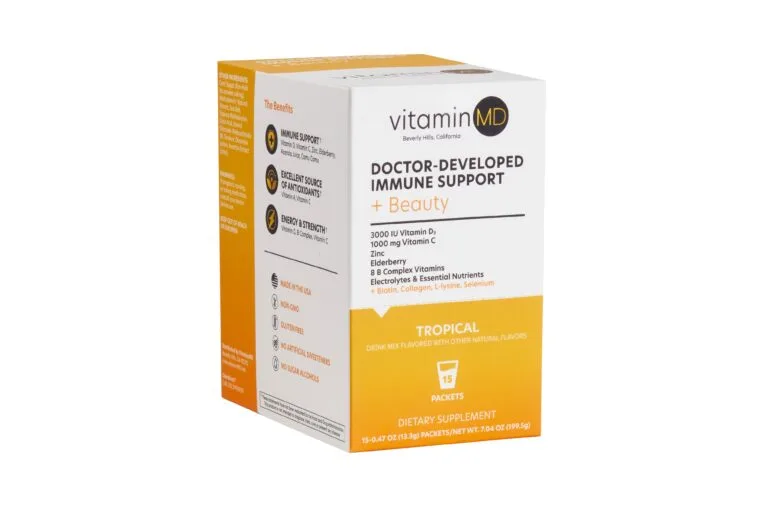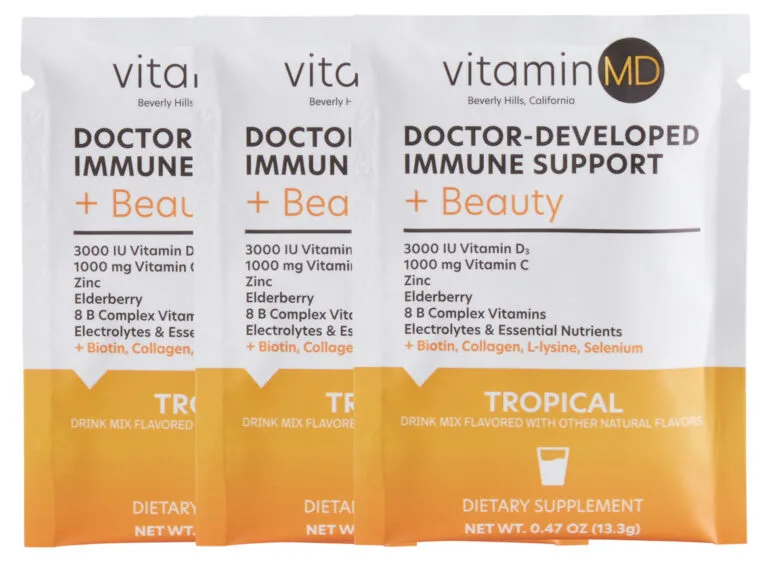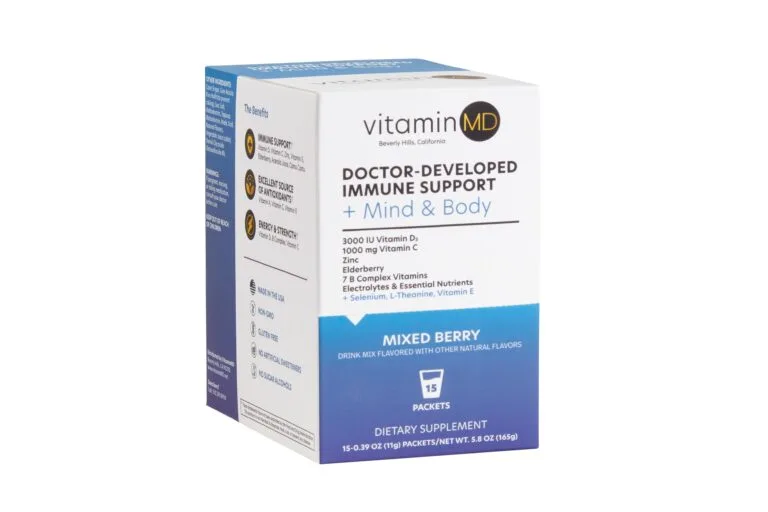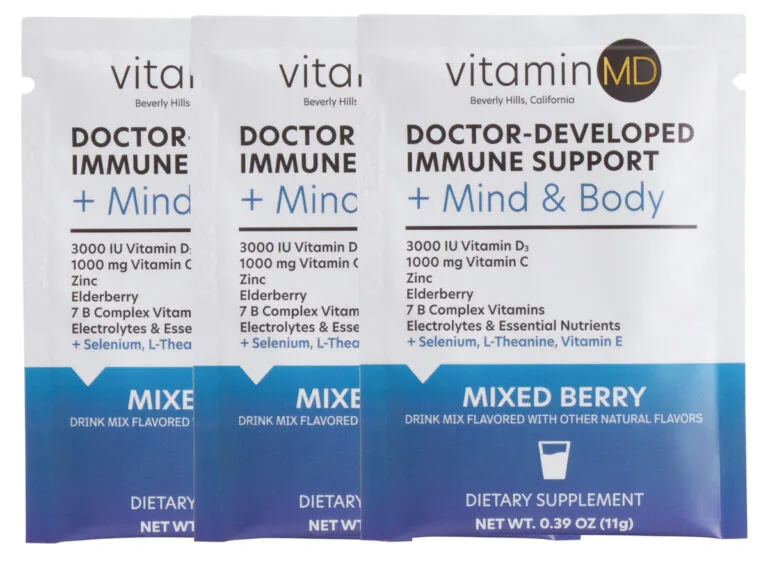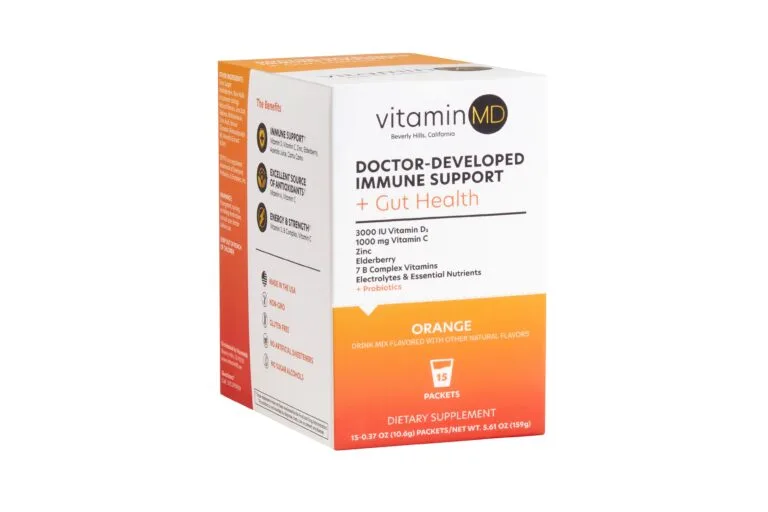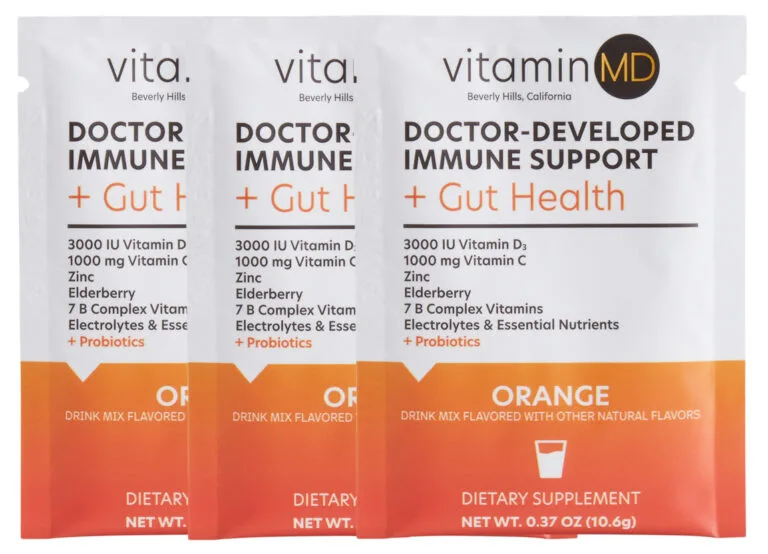
Do you suffer from a vitamin D deficiency? Millions of people around the globe struggle with this condition. With the right supplements, you can overcome your deficiency and feel better than ever.
We at VitaminMD are committed to giving our clients high-quality vitamins and supplements. Omega-3 fatty acids, probiotics, and multivitamins are just a few of the vitamins and supplements we provide. You may be confident that VitaminMD is providing you with the top dietary supplements available.
What is vitamin D, and what does it do?
Vitamin D (also known as “calciferol”) is a fat-soluble vitamin that is naturally present in some foods and available as a dietary supplement.
It is also produced when ultraviolet (UV) rays from sunlight strike the skin and trigger vitamin D synthesis.
Vitamin D is important for overall health, as it helps to maintain the immune system, promotes bone health, and helps regulate blood sugar levels. It is also essential for the absorption of calcium and other nutrients from the diet.
While most people get enough vitamin D from sunlight exposure, it’s also possible to get the nutrient from dietary sources, including fortified foods and supplements. There are some people who have vitamin d deficiency or less levels of vitamin d.
To compensate for the amount of vitamin D, it is important to take on some form of vitamin D supplements. Vitamin D sufficiency prevents rickets in children and osteomalacia in adults.
According to the National Institutes of Health, Together with calcium, vitamin D also helps protect older adults from osteoporosis.
What are the benefits of vitamin D?
Vitamin D has numerous benefits for our health and well-being. Here are some of the essential benefits of vitamin D:
Reduces the risk of chronic diseases: Many studies have demonstrated that a lack of vitamin D is associated with a higher risk of developing chronic conditions like cancer, diabetes, and heart disease.
Promotes conception and lactation: Vitamin D is essential for a healthy pregnancy and can help to stave off issues like gestational diabetes and preeclampsia. Ensuring that their infants consume enough vitamin D through breast milk is crucial for breastfeeding mothers.
Improves bone health: Calcium absorption, which is crucial for bone mineralization, depends on vitamin D. Osteoporosis, a disorder that weakens bones and makes them more prone to fractures, is prevented and helps preserve bone density.
Improves immune function: Vitamin D controls the immune system and aids in resistance to illnesses like the flu and the common cold.
Boosts respiratory health: Research has revealed that vitamin D boosts respiratory health and lowers the risk of respiratory illnesses like asthma and chronic obstructive pulmonary disease (COPD).
Reduce the risk of autoimmune diseases: Vitamin D has been demonstrated to have anti-inflammatory characteristics, which may help lower the risk of autoimmune disorders, including multiple sclerosis and rheumatoid arthritis.
Improve cognitive function: Vitamin deficiency or low vitamin d intake has been linked to dementia and cognitive decline, which suggests that it may enhance cognitive performance. Using vitamin D supplements could aid older people with their cognitive function.
Severe vitamin d deficiency is related to an increased risk of type 2 diabetes mellitus (T2DM), metabolic syndrome (MS), and cardiovascular disease (CVD)-with increased visceral adipose tissue and body mass index (BMI), as well as the frequently associated hypercholesterolemia. It has been reported that vitamin D levels are inversely related to cardiovascular (CV) risk in men and women. However, the effects of vitamin D on distinct outcomes in women and the dose of supplementation needed to improve clinical endpoints have not been established. 25-Hydroxyvitamin D [25(OH)D] reduces systemic inflammatory mediators in CVD and favors the release of anti-inflammatory cytokines from the immune system.
How much vitamin D should I take?
The answer depends on several factors, including age, lifestyle, and medical conditions. Vitamin D deficiency is prevelant in the united states and around the world. The recommended optimal levels on laboratory values per research for vitamin D is 70 iu to 80 iu. We believe that most people should be on at least 2000 iu to 3000 iu of vitamin D daily as most of us do not receive adequate amounts of sunlight.
Thea recommended daily allowance for vitamin D is 600 international units (IU) of vitamin D each day. However, people who are over 70 years old may need as much as 800 IU per day. This recommendation is low based on our studies and prevelance of vitamin d deficiency.
Vitamin D self-administration-related side effects, such as hypercalcemia and hypercalciuria, are rare and usually result from taking extremely high doses of vitamin D for a prolonged time.

What is the best way to get more vitamin D?
Here are some ways to increase your vitamin D intake:
Spend time in the sun: When you are exposed to full sunshine during an outing on a sunny day, the skin will generate sufficient levels of vitamin D3 – the active form of vitamin d. How much is produced depends upon a number of factors, such as time and season; latitude or location; one’s skin tone; among others. While sun exposure is a healthy source of vitamin D, it’s crucial to take precautions and protect your skin from harmful UV rays that can damage your skin and create darker skin or even skin cancer. Using sunscreen, wearing a hat, and avoiding long exposure to the sun’s rays are all part of this.
Eat foods rich in vitamin D: Fatty fish, such as salmon, tuna, and mackerel, as well as egg yolks, cereal, and liver, are among foods naturally high in vitamin D. Many foods, including orange juice and dairy products such as milk, yogurt, and cheese are fortified with vitamin D to help increase vitamin D intake. Vitamin D was already authorized for use in soy beverages, but today’s approval increases the authorized amount for such beverages that are intended as milk alternatives.
Get regular check-ups: It’s crucial to undergo routine exams and blood tests to keep track of your vitamin D levels. By monitoring your vitamin D consumption, you can evaluate the adequacy of intake and identify possible health issues.
Supplements: There are a number of options for supplementing your vitamin D intake, ranging from capsule formulations to tablets and liquid drops. Living in areas with limited sun exposure or not getting enough vitamin D through diet can be challenging – but these options offer an efficient solution!
What supplements are high in vitamin D?
There are numerous vitamin D supplements on the market that are rich in vitamins. The most typical varieties include:
Vitamin D2: Ergocalciferol, generally known as vitamin D2, is a plant-based supplement that is less effective than vitamin D3. Even so, it works well to increase low vitamin D levels.
Vitamin D3: Cholecalciferol, usually known as vitamin D3, is the most widely used type of vitamin D supplement. It is the same kind of vitamin D that is created by the skin when exposed to sunshine and is sourced from animal sources.
Cod liver oil: Cod liver oil is one of the many fish liver oils that are excellent sources of vitamin D. These oils, which come in supplement form, are obtained from the livers of oily fish. Rich in omega-3 fatty acids and vitamin D, cod liver oil is a well-liked dietary supplement. Up to 400–1000 IU of vitamin D can be found in a teaspoon of cod liver oil. Also, Sardines are a fantastic source of vitamin D. Little and oily sardines are frequently canned in either water or oil. They are a nutrient-dense food that is high in a number of significant nutrients, including vitamin D.
Multivitamins: Many multivitamins include vitamin D, typically in the form of vitamin D3. It is crucial to examine the label of multivitamins to make sure that they contain enough vitamin D because the amount of vitamin D might vary.
Calcium and vitamin D supplements: To maintain bone health, calcium, and vitamin D supplements are frequently used combined. They frequently contain vitamin D3, and each dish can deliver up to 1000 IU of vitamin D.
References:
1. Office of Dietary Supplements – Vitamin D. Nih.gov. Published 2015. Accessed March 27, 2023. https://ods.od.nih.gov/factsheets/VitaminD-HealthProfessional/
2. Office of Dietary Supplements – Vitamin D. Nih.gov. Published 2015. Accessed March 27, 2023. https://ods.od.nih.gov/factsheets/VitaminD-HealthProfessional/
3. Renke G, Starling-Soares B, Baesso T, Petronio R, Aguiar D, Paes R. Effects of Vitamin D on Cardiovascular Risk and Oxidative Stress. Nutrients. 2023;15(3):769. doi:https://doi.org/10.3390/nu15030769
4. Pludowski P, Holick MF, Grant WB, et al. Vitamin D supplementation guidelines. The Journal of Steroid Biochemistry and Molecular Biology. 2018;175:125-135. doi:https://doi.org/10.1016/j.jsbmb.2017.01.021
5. Center. Vitamin D for Milk and Milk Alternatives. U.S. Food and Drug Administration. Published 2020. Accessed March 27, 2023. https://www.fda.gov/food/food-additives-petitions/vitamin-d-milk-and-milk-alternatives

